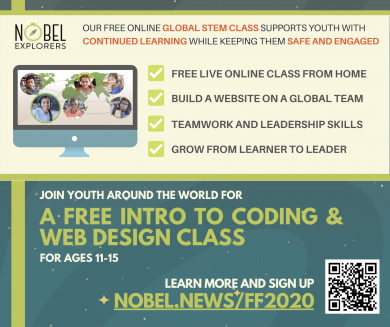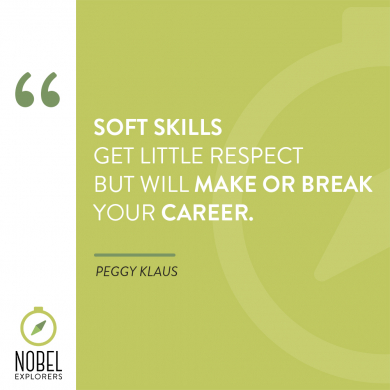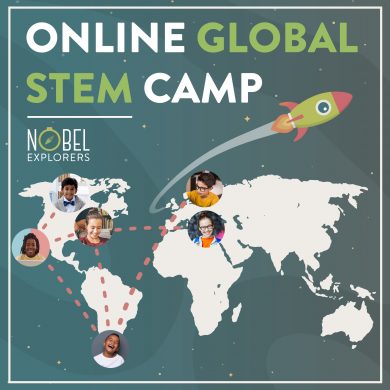Since January is the official Get Organized Month, we’ve decided to dedicate an article to organization skills in kids. You’ll learn what organization skills are, how to recognize when children struggle with them, and how to help them overcome these issues.
What Are Organization Skills?
The type of skills that, simply put, help kids stay organized in their everyday activities. They help kids make plans, use all the resources available to them, and allocate their time effectively. These skills rely on executive function, which is responsible for, among other things, impulse control. It enables kids to focus on what’s important right now, successfully ignore distractions around them, and plan out what needs to be done.
But what happens if they lack some of these skills?
Recognizing the Lack of Organization Skills
If your child is struggling to get organized, you may notice the following:
Difficulty Setting Priorities & Making Schedules
They may be doing things ad hoc, and experiencing certain consequences because of it. For example, they may not be planning their homework ahead, which leads to it piling up and inevitably causing them trouble. This can also apply to chores, especially with younger kids.
You may have noticed that they always do it at the last moment, and it’s not because they forget – it’s simply because they think that the order in which they do things doesn’t matter as long as it’s all being done.
“I’ll go to Mark’s first, then I’ll come back home and finish that song I’ve been learning to play on the guitar, and I’ll do my homework in the evening.”
In their head, as long as it’s planned out, priorities don’t matter – it will all be done after all, won’t it? But after they come home from Mark’s and finish playing for an hour and a half, they may be too tired to do their literature assignment, so they may just finish those three math questions and go to bed. They’ll do it tomorrow, but not before going to the pool with their friends!
Poor Time-Management Skills

“My kid does plan everything in advance, schedule and all – but they still can’t seem to finish stuff on time!”
In that case, planning and prioritizing is probably not the issue, but their perception of time is. If they can sit down and decide on what their priorities are, that’s amazing – but without proper time management, it will all remain pretty theoretical.
What usually happens is that they believe they have more time to do certain things than they actually do.
“I’m great at history, so I’ll learn these 10 pages in half an hour!”
“Cleaning up my room? Let’s put that at 5:15 p.m., ‘cause I gotta leave at 5:30 for my soccer practice. That’s plenty of time to finish it!”
“I’ll set my alarm for 7:30 a.m. – 10 minutes is plenty of time to get up, get dressed, have breakfast and leave for school!”
If this is the way your kid’s thinking when they sit down to plan their activities, chances are they’ll end up hurrying through them and skipping a bunch because they simply can’t fit them all in – and they’ll end up stressed out and disappointed as a result.
And not to mention that things like video games and YouTube videos tend to find their way in there somewhere. After all, they still have plenty of time to finish their assignments after this one game, right?
Not Knowing Where to Start & What Resources to Use
Your child may be great at making schedules, and as a bonus, they know how much time each of those things is going to take, which is awesome! But they may be struggling with the last step, and feeling confused and even anxious every time they have to actually start working on something.
“Where do I start?”
“What do I need for this? Where do I find it all?”
“Which of these goes first?”
“Should I ask someone for help? Should I do it by myself?”
Having all these thoughts flood them as they sit down at their desk to write that assignment, or as they start cleaning their room can be so blocking. To you, it may seem like a simple enough thing – your assignment says “The Discovery of America”, so you start with which parts of the world were already known, who Christopher Columbus was, how he came to America, and what that discovery meant (once they figured out it was not, in fact, India!) You get your class notes, add to it from the internet, and voila, you’re done!
But to someone who struggles to identify the appropriate order of things as well as their possible resources, this entire experience is overwhelming, and it’s no wonder they start getting nervous at the very thought of an assignment.
The good news is, there are ways to help them overcome each of these stumbling blocks. Here’s how.
Don’t Do Everything for Them
This may seem counterintuitive. “If they’re struggling with it, shouldn’t I help them?” Absolutely! But unless they do things on their own, they’ll never learn to organize themselves in the right way, which may affect their future. If you’re always reminding them about their homework now, what happens once they get a job? You can’t possibly know all of the responsibilities they’ll have at any moment then, and without you to remind them, chances are they won’t be very successful at it.
Instead, help them make a huge calendar to put above their desk. You can aid them in the beginning so they don’t forget to enter all their assignments onto it (after some time, they’ll get the hang of it on their own). You can also color code it for priorities – red if it’s very urgent, yellow if it’s not that urgent, but should be done soon, and green if there’s plenty of time left.

This will help them better understand what needs to be done ASAP, before they’ve gone off to the pool or started learning how to play Stairway to Heaven beginning to end!
Time-Management Diary
Here’s what to do if your kid’s greatest struggle isn’t setting priorities, but understanding how much time each of those tasks will take.
Have them track all their activities for a week or two, writing down how much time each takes. Once that’s done, you can sit down with them and discuss the findings. Chances are, they’ll realize that doing five math problems and writing a 15-page assignment do not each take “like, half an hour”. For each new activity they introduce, they should track it first so they’ll be better able to plan it all out next time they need to do it!
Bonus Advice
Make sure they’re not sacrificing their sleep now that they know how much time their daily activities take! Just because an assignment will take two hours instead of half an hour doesn’t mean their sleep should now last seven hours instead of eight and a half. You can share your own diary with your daily tasks to show them that it’s possible to do it all and lead a healthy lifestyle at the same time!
One of the must-do’s of good time management is separating a single task into a couple of mini tasks. This serves two purposes. For one, it allows them to rest – otherwise, their focus could soon start to waiver, and they’d spend even more time trying to get it back. The second thing is, “all I need to do is spend half an hour Monday-Thursday on it” sounds much easier than “I have to sit and write for two hours on Thursday”, right? This helps them avoid anxiety and even get motivated to finish it as soon as possible!
And another thing – don’t forget to set firm deadlines! “Sometime next week” may lead them to finish it on Sunday evening, but “Done by Friday at 5:00 p.m.” is a whole different story that instills in them a sense of responsibility.
Learning by Example
Helping them identify their resources and the correct order of things may be the trickiest part, but it can still be done! This will work best if they’re learning from someone who’s successfully done similar things in the past. For example, if they have a friend who’s great at it, instead of just bluntly asking them what they should do (because there’s no learning there), they can simply ask to see an assignment and ask them to explain how they did it.
The questions to ask may be:
“What did you do first?”
“Where did you do your research?”
“Do you write it all at once, or do you have an outline first?”
“How do you know when you’ve finished the assignment?”
They should write the answers down and have them serve as a reminder. And after they’ve consulted this three, five, or twelve times, there’ll come a time when they realize – “Wow, I’ve just finished this assignment without even glancing at my reminder!”
Speaking of peers helping peers, the best way for your child to learn the soft skills necessary for their future (such as time management, prioritization, communication) is by interacting with students their own age as part of a project they all find interesting and valuable. Nobel Explorers is an online global STEM camp designed to help kids develop their soft skills while learning coding – the best of both worlds!


 Super Summarizer
Super Summarizer “To Do” Trooper
“To Do” Trooper Captain Convergent
Captain Convergent



